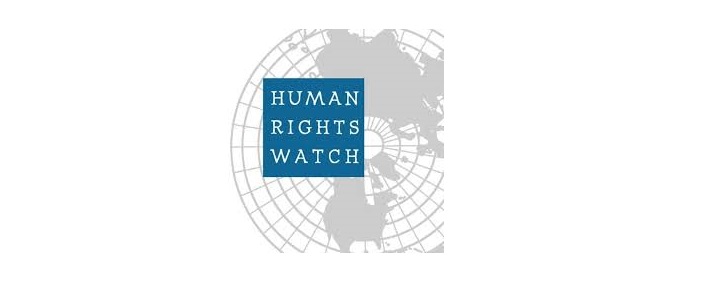
Human Rights Watch warned against the Turkish government’s selectivity in dealing with the possible release of some prisoners, said that there should be no discrimination on the basis of political opinion, and demanded that the amnesty include all prisoners who did not commit violence.
With the Corona virus beginning to spread rapidly, the Turkish government is seeking to develop plans, including speeding up a plan to replace prison terms with alternatives such as early conditional release and house arrest.
In this context, Human Rights Watch welcomed these endeavors, but warned against the Turkish government’s selectivity in dealing with the possible release of some prisoners.
The human rights organization also warned the Turkish government that there would be no discrimination on the basis of political opinion, and that it was imperative that the expected amnesty include prisoners who had not been imprisoned for violent acts.
It is reported that this week the bill before parliament could help up to 100,000 prisoners among the prison population in Turkey, out of 300,000 prisoners, but it will exclude thousands of prisoners who are tried or sentenced for “terrorist crimes” or “crimes against the state”.
According to the organization, terrorism may appear to be the most serious crime, but in Turkey, the government abuses these charges for political purposes, as many prisoners are placed in prolonged pretrial detention or sentenced without evidence that they committed violence, incited violence, or presented Logistical assistance to outlawed armed groups.
Among them are journalists such as Ahmed Altan, politicians such as Salahuddin Demirtaş and Vikin Yuksk Dag, human rights defenders such as Osman Kavala, and thousands of civil servants, teachers, and others who have been punished for their association with the Fatah Allah Gulen movement.
Human Rights Watch has worked for years to address the abuse of terrorism laws in Turkey, including how courts define the exercise of the right to assemble as a terrorist crime, and how the media, politicians and lawyers have been targeted.
The draft early government parole law indicates that prisoners who have spent at least half of their sentence can be released early, and includes various provisions such as empowering pregnant women and prisoners over the age of 60, who have health conditions to release them, and placing them under house arrest or parole.
“All efforts to reduce prison inmates at this time are welcome,” said Human Rights Watch. “But these measures cannot become a tool for targeting political prisoners. Parliament must reject any discriminatory exception for” terrorism “prisoners and sick prisoners who have requested an adjournment. we must ensure that decisions regarding the early release of all prisoners are not discriminatory – taking into account the need to protect their health, especially when there are risks due to age or priority medical conditions”.

